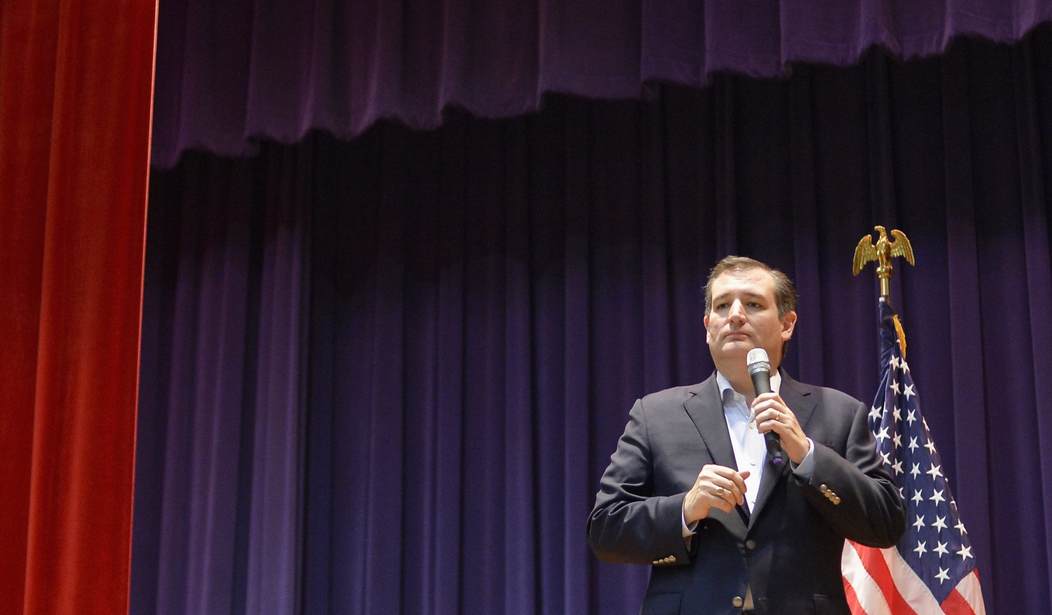When a political party picks one candidate over another, the party signals to the broader electorate what it represents. If the Republican Party nominates Ted Cruz instead of Donald Trump, it will represent one of the greatest practical and moral victories in the Republican Party’s noble history.
Cruz’s enormous victory in Wisconsin this week makes it more probable than not that Donald Trump falls short of the required 1,237 delegates – 50 percent plus one of the 2,472 total delegates to the convention – to cinch the nomination on the first ballot. Combined with savvy delegate recruitment and a mounting string of endorsements, Cruz is setting himself up as the most likely nominee in a contested convention.
While many Trump supporters might decry this outcome under the stated rules of the party as the “establishment” countermanding the voters, this broad theme oversimplifies. Both Trump and Cruz exist outside the “establishment.” The more interesting question is what statement the GOP makes by picking the particular candidate Cruz over the particular candidate Trump.
If Cruz wrests the nomination from Trump with a renewed message of unity and opportunity, the party as a whole should rejoice and celebrate. Indeed, there are four reasons the party should be dancing inside at the prospect, because Cruz defeating Trump represents:
1. The Fresh Defeating the Stale
Cruz is the single best embodiment of the future of the Republican Party. At 45 years old, he rose to national prominence after the Obama Machine had its way massacring the old guard of the GOP.
The upshot is that Cruz’s GOP is not your grandfather’s GOP. As Ben Domenech has argued, Cruz responds to the Bush years not by prescribing the same general big-government message with a different messenger, but rather a new message altogether. He has made a clean break with the nation-building foreign policy of the neo-conservatives. In his first public office at the Federal Trade Commission, he was a consensus-builder dedicated to opening up technology markets to e-commerce and greater innovation. He is the preferred candidate of millenials. Cruz represents a fresh start for conservatives.
By contrast, Trump is nothing if not stale. He represents America’s not-so-distant Wolf-of-Wall-Street past. He is the 1987 “author” of The Art of the Deal, a bestseller of yesteryear, who became famous hosting a since-cancelled reality show. Both his hairstyle and slogan, “make America great again,” rely on hopeless nostalgia for a plastic and chrome world that no longer exists. And while his initial candor and irascible disregard for conventions of political dialog might have been entertaining and intriguing at first, his surging 60% disapproval numbers suggest America has grown more weary of him than Hillary Clinton. Now even his schtick is stale. Purging the short-fingered vulgarian candidate from the race with Cruz’s fresh perspective would represent a long-term investment in American conservatism’s future.
2. Principle Defeating Personality
The leftist media regularly (and lazily) frames the debate in the Republican Party as between a sensible, go-along-to-get-along moderate establishment and a crazed, blood-thirsty conservative base that will not listen to reason. The Cruz v. Trump contest shatters this paradigm: Trump and Cruz both exist outside of the establishment, but Trump is an established fixture of America’s circle of elites. Cruz is a new man: he inherited no wealth and has no celebrity to rely upon.
If Trump were to go down to an open-borders-loving, nation-building globalist manager of America’s decline into progressive mediocrity, I might very well join his supporters in protest. But for Cruz to defeat Trump is not a squishy, inoffensive vanilla candidate defeating a grassroots conservative. Rather, it would be conservative principle defeating personal celebrity-driven pragmatism. Cruz is the single most principled, coherent voice for constitutionalism and sober realism.
3. Serious Policy Defeating Knee-Jerk Emotions
Cruz is one of the best policy minds to run for president this entire cycle, while Trump has not bothered to even learn the basics. Cruz can detail the names and complex relationships between conflicting groups in the Middle East, explain the fundamental economic problems behind ObamaCare, and articulate the constitutional boundaries for social issues.
Meanwhile, Trump’s quintuple axle on abortion illustrates that he has never bothered to think through core conservative convictions. The point that Trump does not understand policy has been made so many times, it’s become cliché. But if the GOP picks Cruz over Trump, it will be saying our party values attention to the complexities and details of implementing a conservative policy agenda.
4. Discipline Defeating Shooting-From-the-Hip
Cruz is nothing if not incredibly disciplined. He memorized the Constitution in high school, worked his way through Princeton, and graduated at the top of his class from Harvard Law – all without any family name or money to ease his ascent. His discipline shows in his campaign style: relentless commitment to a principled message, intensive grassroots organization, data-driven tech-savvy, and incredibly creative advertising (see his viral Office Space parody of Clinton’s email scandal). This should give Republicans hope for the general: We will face the Democrats with a campaign up to the task of beating her. Hard work and organization is a refreshing counter-narrative for the chaotic characterization of Tea Party conservatives.
Trump and the concept of discipline have never come within miles of each other. His campaign is a disorganized mess, unaware of the rules, and constantly bogged down by scandals of his own creation. Trump sows the wind, and come November, he will reap the whirlwind.
For these four reasons, Republicans (and the rest of the country) should rejoice about the prospect of not only defeating Trump, but choosing Cruz as the candidate to do it.









Join the conversation as a VIP Member